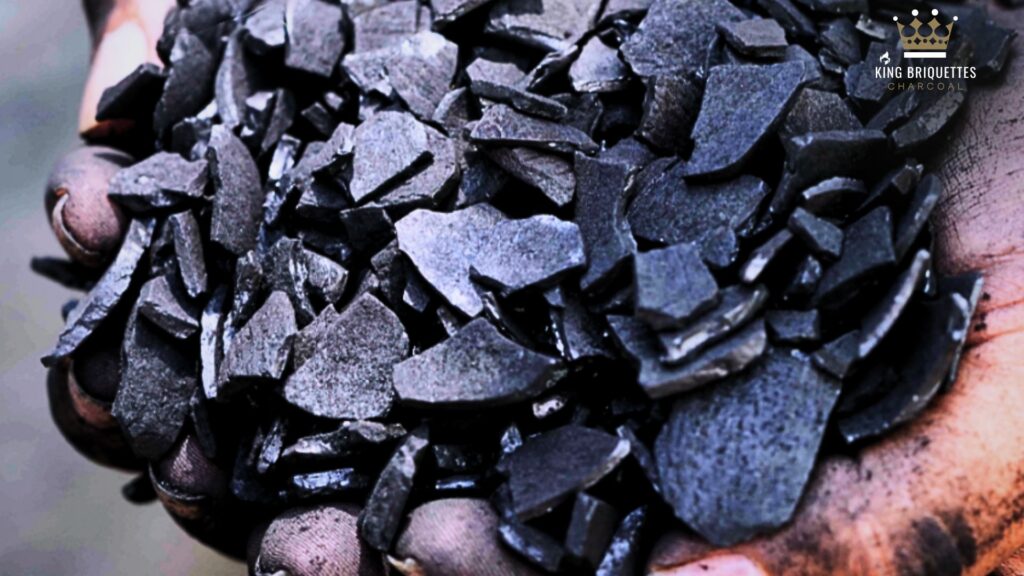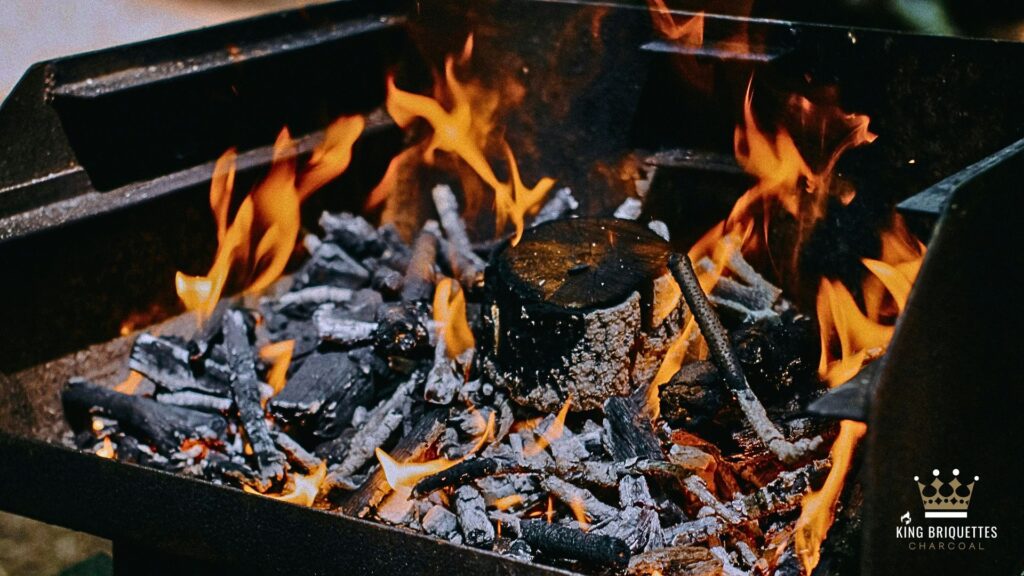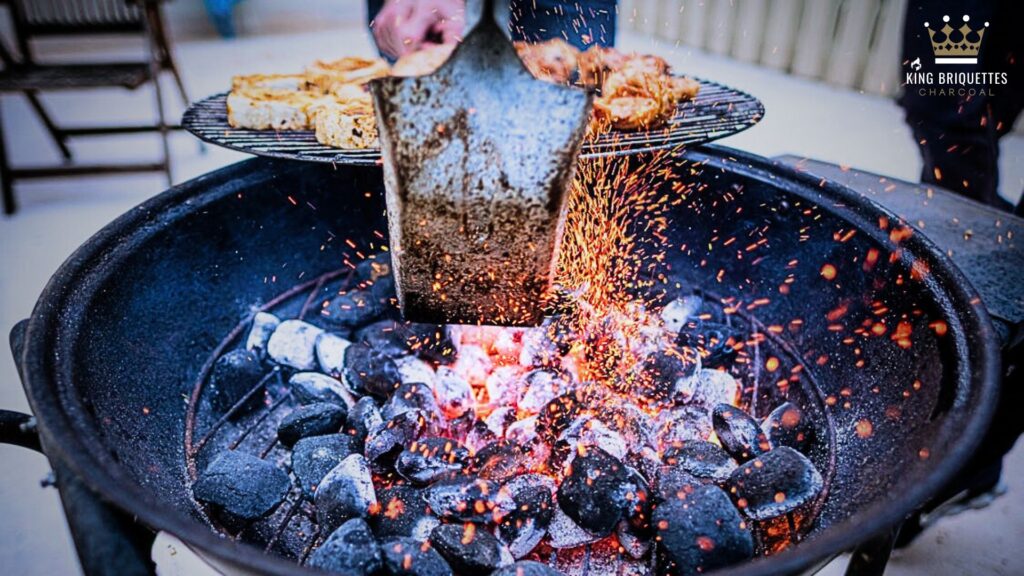Why Coconut Charcoal is the Best Choice for Eco-Friendly Grilling Enthusiasts
Recent Posts

Table of Contents
- Introduction
- Understanding Coconut Charcoal
- The Environmental Cost of Traditional Lump Charcoal
- Advantages of Using Coconut Charcoal for Grilling and Beyond
- The Role of Coconut Charcoal in Fostering Sustainability
- Comparing Coconut Charcoal with Other Eco-Friendly Charcoal Varieties
- Embracing a Greener Grilling Lifestyle with Coconut Charcoal
- Supporting the Planet Through Conscious Purchasing Choices
- Conclusion
- FAQs (Frequently Asked Questions)
Introduction
As the world faces increasing environmental challenges, prioritizing sustainable products, like coconut charcoal, is more important than ever. Traditional grilling methods often rely on lump charcoal, which can significantly harm our planet. Instead, you can discover with King Briquettes Charcoal the best alternative that enhances your BBQ experience and helps save the earth. Whether you’re grilling or enjoying Shisha and Hookah, choosing briquettes made from eco-friendly materials can make a positive impact while providing excellent performance compared to lump charcoal or hardwood charcoal.
Coconut charcoal is a better and more eco-friendly option. Made from discarded coconut shells, it has several unique qualities that make it perfect for conscious consumers:
- Sustainability: Coconut shells are a renewable resource, promoting a circular economy.
- Performance: It offers high heat intensity and longer burn duration, enhancing the grilling experience.
- Clean Burning: Coconut charcoal produces minimal smoke and odor, contributing to a healthier environment.
In this article, we will explore the environmental consequences of traditional charcoal production and discuss the many benefits of coconut charcoal. You will learn how making informed choices when grilling can not only improve your cooking but also support sustainability initiatives. Choosing eco-friendly alternatives like King Briquettes Charcoal can make a significant difference in preserving our planet for future generations.
Understanding Coconut Charcoal
Coconut charcoal is made from discarded coconut shells, which are a renewable resource and important for sustainability. This eco-friendly charcoal is created through a process called pyrolysis, where the shells are heated without oxygen. It’s a natural and energy-efficient way to turn the shells into high-quality charcoal while minimizing waste.
Here are some key points about coconut charcoal production:
- Using Every Part: Instead of throwing away coconut shells as agricultural waste, they’re repurposed. This helps reduce landfill waste and makes the most out of coconuts.
- Less Energy, Less Impact: Making coconut charcoal using pyrolysis requires less energy compared to traditional wood-based charcoal methods. This means lower carbon emissions and a smaller environmental footprint.
- Always Available: Coconut shells can be continuously sourced from coconut farms since they’re always there as part of the farming process. This ensures a steady supply without depleting natural resources.
By choosing coconut charcoal, you not only improve your grilling experience but also support sustainable practices. It’s a great alternative to regular lump charcoal because:
The environmental benefits of its production make it an ideal choice for those looking to minimize their carbon footprint and make more eco-friendly choices in their everyday lives.
Now that we understand how coconut charcoal is made and why it’s better for the environment, let’s dive deeper into its specific advantages in the next sections.
The Environmental Cost of Traditional Lump Charcoal

The production and use of lump charcoal have significant environmental consequences. Some of the key issues are:
1. Deforestation
Traditional lump charcoal is often made from hardwood trees. This leads to extensive deforestation, which has negative effects such as:
- Disrupting ecosystems
- Reducing biodiversity
Forests are important for absorbing carbon dioxide, so when they are destroyed, it worsens climate change.
2. Carbon Emissions
Making lump charcoal involves burning wood in an inefficient way, which releases a lot of carbon dioxide into the atmosphere. This adds to the greenhouse effect and makes global warming worse. For every ton of charcoal produced, several tons of carbon emissions can be released.
These are not the only problems with traditional charcoal production. There are other ecological issues as well:
3. Habitat Destruction
Clearing forests for charcoal production doesn’t just affect trees. It also displaces wildlife and puts many species at risk of dying out completely. This changes natural habitats permanently and upsets the delicate balance of ecosystems.
4. Air Pollution
Burning wood releases harmful substances into the air, contributing to air pollution and negatively impacting the health of nearby communities. This includes emissions such as:
- Particulate matter
- Volatile organic compounds (VOCs)
These emissions can harm air quality and seriously endanger the health of those living in proximity.
By understanding these environmental costs, we can see how crucial it is to find alternatives that are better for the environment. One such option is coconut charcoal, which addresses these issues effectively. Coconut charcoal briquettes, in particular, offer a cleaner burning alternative that helps reduce harmful emissions while supporting sustainable practices.
Advantages of Using Coconut Charcoal for Grilling and Beyond

Coconut charcoal is an excellent option for grilling, offering several benefits that improve the cooking experience:
1. Superior Performance
Coconut charcoal is known for its ability to generate high heat efficiently. It produces intense heat, ensuring that food is cooked evenly and thoroughly. Additionally, coconut charcoal has a long burn time, allowing for extended grilling sessions without the need to add more charcoal constantly. This makes it ideal for gatherings or barbecues.
2. Cleaner Burning Process
- One of the most notable advantages of coconut charcoal is that it produces minimal smoke and has no odor when burned. Unlike traditional lump charcoal, which contains harmful chemicals, coconut charcoal is made from natural materials. As a result, it creates a cleaner grilling environment that preserves the flavors of the food while reducing unpleasant smoke.
3. Easy Cleanup
- One of the most notable advantages of coconut charcoal is that it produces minimal smoke and has no odor when burned. Unlike traditional lump charcoal, which contains harmful chemicals, coconut charcoal is made from natural materials. As a result, it creates a cleaner grilling environment that preserves the flavors of the food while reducing unpleasant smoke.
4. Versatile Applications
In addition to its benefits for grilling, coconut charcoal can be used in other ways:
- Skincare products: Due to its detoxifying properties, coconut charcoal is often used in face masks, cleansers, and other skincare products.
- Water filtration: Coconut charcoal is effective at removing impurities from water, making it suitable for use in filtration systems to purify drinking water.
- Environmental impact: With an increasing focus on sustainability, coconut carbon offers an appealing choice for environmentally friendly grilling options while also improving performance and convenience.
This versatility highlights how coconut charcoal can positively impact not only outdoor cooking but also everyday life.
The Role of Coconut Charcoal in Fostering Sustainability
Coconut charcoal plays a significant role in promoting sustainability through the following mechanisms:
1. Closed Carbon Cycle
Utilizing coconut shells as a renewable resource contributes to closing the carbon cycle. This process captures carbon emissions during charcoal production, offsetting the greenhouse gases typically released by traditional charcoal manufacturing methods.
2. Supporting Local Farmers
The production of coconut charcoal enhances the livelihoods of local coconut farmers. By converting agricultural waste into valuable charcoal, farmers gain an additional income source while simultaneously reducing waste that would otherwise go unused. This creates a sustainable economic model that benefits both producers and the environment.
3. Certifications for Sustainable Practices
Many producers of coconut charcoal adhere to rigorous certifications and standards that ensure eco-friendly practices. Look for labels such as FSC (Forest Stewardship Council) or similar certifications that indicate responsible sourcing and sustainable production methods.
Incorporating coconut charcoal into your grilling routine not only enhances your cooking experience but also contributes positively to environmental sustainability and community support. This choice aligns with broader efforts toward reducing ecological impacts while enjoying outdoor culinary traditions.
Comparing Coconut Charcoal with Other Eco-Friendly Charcoal Varieties
When it comes to eco-friendly choices, coconut charcoal outshines traditional options like hardwood lump charcoal and binchotan in several aspects. These varieties differ in terms of sustainability, performance, and availability.
Sustainability
- Coconut Charcoal: Derived from discarded coconut shells, it effectively closes the carbon cycle while utilizing a renewable source of biomass.
- Hardwood Lump Charcoal: Unfortunately, its production often involves deforestation and loss of natural habitats, which raises concerns about its long-term environmental impact.
- Binchotan: Although sourced from specific hardwoods in Japan making it more sustainable than hardwood lump charcoal, challenges persist due to how the raw materials are obtained.
Performance
- Coconut Charcoal: Renowned for its intense heat and longer burning time, which greatly enhances grilling experiences.
- Hardwood Lump Charcoal: While it provides good heat, it often needs more frequent replenishment during cooking sessions.
- Binchotan: Offers a cleaner burn with minimal smoke but can be harder to find and comes at a higher price point.
Availability
- Coconut Charcoal: As the demand for sustainable products grows worldwide, coconut charcoal is becoming increasingly easy to find.
- Hardwood Lump Charcoal: Although widely available, its quality varies significantly depending on the production process.
- Binchotan: It remains less common outside of specialty markets and usually carries a higher price tag compared to other choices.
For all your grilling needs, coconut charcoal stands as the top eco-friendly option, combining sustainability with excellent performance.
Embracing a Greener Grilling Lifestyle with Coconut Charcoal
Adopting coconut charcoal for grilling goes beyond just enjoying a cleaner burn; it also provides opportunities for environmental conservation through innovative practices. One notable approach is repurposing ash, a byproduct of burning coconut charcoal. Here are some creative ways to use this natural residue:
1. Natural Fertilizer
Coconut charcoal ash is rich in potassium and can improve soil quality. Mixing it into garden beds or potted plants enriches the soil, promoting healthy plant growth.
2. Pest Control
The fine texture of ash can deter pests like slugs and snails when sprinkled around garden edges, providing a natural barrier without harsh chemicals.
Choosing sustainable charcoals such as coconut not only supports eco-friendly grilling but also aligns with a broader commitment to reducing one’s ecological footprint.
Consider these practices during outdoor cooking activities:
- Use reusable grill mats or biodegradable paper products.
- Opt for locally sourced ingredients to minimize transportation emissions.
- Encourage friends and family to adopt sustainable grilling habits, spreading awareness about the benefits of eco-friendly alternatives.
Incorporating these actions fosters a communal effort toward environmental stewardship while enjoying delicious meals outdoors.
Supporting the Planet Through Conscious Purchasing Choices
Making informed decisions while shopping can significantly impact the environment. Opting for coconut charcoal is just the beginning. Here are additional ways to support sustainability through your purchasing choices:
Choose Sustainable Brands
Look for companies that prioritize environmentally-friendly practices. This includes selecting grilling accessories made from recycled materials or those that implement sustainable sourcing methods.
Support Environmental Charities
Many brands donate a portion of their proceeds to environmental charities. One notable organization, One Tree Planted, focuses on global reforestation efforts. By purchasing eco-friendly products, you contribute to initiatives that help restore forests and combat climate change.
Research Certifications
Seek out products with certifications that indicate commitment to sustainability standards. These labels often assure consumers that they are making responsible purchases.
When consumers demand sustainable products, businesses are encouraged to adopt greener practices. This collective effort fosters a culture of environmental responsibility. Making conscious choices not only benefits personal health and enjoyment but also promotes a healthier planet for future generations.
Conclusion
Coconut charcoal is a better and more sustainable option than traditional lump charcoal. By choosing this eco-friendly alternative, you can significantly impact the environment just by making small changes in your grilling habits.
Some of the key benefits of switching to coconut charcoal include:
- Reduced Carbon Footprint: Using a renewable resource helps in closing the carbon cycle.
- Cleaner Burning: Its natural composition results in fewer harmful emissions.
- Minimal Waste: The low amount of ash residue makes it easier to keep your grilling area clean.
Incorporating coconut charcoal into your outdoor cooking routine not only enhances the flavor of your food but also shows your commitment to sustainability.
There are many other ways you can adopt eco-friendly practices in your daily life, such as:
- Using compostable materials.
- Supporting local businesses that prioritize environmental responsibility.
- Participating in community initiatives focused on conservation.
As consumers, every choice we make has an impact. Each purchase we make can contribute to preserving our planet for future generations.Let’s embrace coconut charcoal, specifically the best coconut charcoal briquettes, and lead the way towards a greener future. That is the purpose of King Briquettes Charcoal. Together, we can take meaningful steps to save the earth and promote an eco-friendly, healthier environment for all.
FAQs (Frequently Asked Questions)
What is coconut charcoal and why is it considered eco-friendly?
Coconut charcoal is produced from discarded coconut shells through a process called pyrolysis, which is a natural and energy-efficient method. It is considered eco-friendly because it utilizes renewable resources, helping to reduce waste and promote sustainability in charcoal production.
How does traditional lump charcoal impact the environment?
The production and use of traditional lump charcoal contribute to significant environmental issues, including deforestation for wood-based charcoals, increased carbon emissions, habitat destruction, and air pollution. These factors collectively harm ecosystems and exacerbate climate change.
What are the advantages of using coconut charcoal for grilling?
Coconut charcoal offers several advantages: it has high heat efficiency and a long burn time, producing minimal ash residue. Additionally, it burns smokelessly and odorlessly, enhancing the grilling experience while making cleanup easier.
In what ways does coconut charcoal support sustainability?
Coconut charcoal supports sustainability by closing the carbon cycle through the use of renewable biomass sources. It also provides economic benefits to local coconut farmers by adding value to their agricultural waste. Sustainable production practices are often certified to ensure minimal environmental impact.
How does coconut charcoal compare to other eco-friendly charcoals?
When compared to hardwood lump charcoal and binchotan, coconut charcoal stands out for its sustainability due to its renewable source. It also offers superior performance in terms of heat intensity and duration, making it a great choice for various grilling needs depending on accessibility and regional preferences.
What can I do with the ash residue from coconut charcoal?
The ash residue from coconut charcoal can be creatively repurposed as a natural fertilizer for plants. This not only helps in reducing waste but also contributes positively to environmental conservation efforts during outdoor cooking activities.
Author: Admin | Date: 29 July 2024